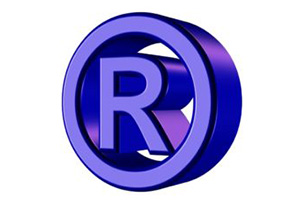STANDARD FOR PROVING WILLFUL PATENT INFRINGMENT IN PATENT CASES
An accused patent infringer can face enhanced damages of up to three times actual damages if the accused infringer is found to have willfully infringed a patent. 35 U.S.C. § 284. In litigation, both parties should consider whether an accused infringer’s actions could subject it to an enhanced damages award because of willful infringement. This article focuses on the standard for determining whether an accused infringer willfully infringed a patent.
For an accused infringer’s actions to be willful patent infringement, a patentee must prove, by clear and convincing evidence, that: 1) “the infringer acted despite an objectively high likelihood that its actions constituted infringement of a valid patent”; and 2) “that this objectively-defined risk . . . was either known or so obvious that it should have been known to the accused infringer. In re Seagate Technology, LLC, 497 F.3d 1360, 1371 (Fed. Cir. 2007) (en banc). A totality of the circumstances analysis applies, and the accused infringer’s state of mind is not relevant to the inquiry. Id.
Courts have also identified several factors (commonly referred to as the “Read” factors) that a district court may take into consideration in deciding whether to grant enhancement of damages and in determining the amount thereof. The Read factors include: (1) whether the defendant deliberately copied the ideas or design of another; (2) whether the defendant, when he knew of the other’s patent protection, investigated the scope of the patent and formed a good faith belief that it was invalid or that it was not infringed; (3) the defendant’s behavior as a party to the litigation; (4) the defendant’s size and financial condition; (5) the closeness of the case; (6) the duration of the defendant’s misconduct; (7) remedial action by the defendant; (8) the defendant’s motivation for harm; and (9) whether defendant attempted to conceal its infringement. Amsted Indus. Inc. v. Buckeye Steel Castings Co., 24 F.3d 178, 183 (Fed. Cir. 1994).
For a patentee to prove willful patent infringement, the patentee must also prove that the alleged infringer had actual knowledge of its infringement. The filing of a law suit adequately alleging patent infringement is sufficient to establish notice of infringement. 35 U.S.C. 287 (a). To establish an alleged infringer’s pre-suit knowledge of infringement, the correct approach is to focus on the actions of the patentee, not the knowledge or understanding of the alleged infringer.Amsted Indus. Inc., 24 F.3d at 187. The patent owner is required to give “specific and actual notice to the accused infringer charging infringement of the patent in question. It is not usually sufficient that the infringer had actual knowledge of the patent.” Id.
In many cases, to ensure that an alleged infringer had actual pre-suit knowledge of infringement, a patentee may choose to send a cease and desist letter to an alleged infringer before filing a lawsuit. To serve as actual knowledge or actual notice of infringement, a letter or communication must be sufficiently specific to support an objective understanding that the recipient is an infringer. Gart v. Logitech, Inc., 254 F.3d 1334, 1346 (Fed. Cir. 2001). The letter must communicate a charge of infringement of specific patents by a specific product or group of products. Amsted Industries Inc., 24 F.3d at 187; see also Universal Elecs., Inc. v. Universal Remote Control, Inc., 34 F. Supp. 3d 1061, 1098 (C.D. Cal. 2014) (finding no infringement where a letter stated alleged infringer “may have infringed”).
An alleged patent infringer does not have an affirmative duty to obtain a legal opinion as to whether its product or process infringes on a patent in order to prove that it did not willfully infringe a patent. In re Seagate Technology, LLC, 497 F.3d at 1371. While possession of a favorable opinion of counsel is not essential to avoid a willfulness determination, it is an important factor to be considered. Id. at 1369 (quoting Electro Med. Sys., S.A. v. Cooper Life Scis., Inc., 34 F.3d 1048, 1056 (Fed. Cir. 1994)). An accused infringe is well advised to investigate whether its accused infringing product or process infringes a patent.
The patent attorneys at the The Plus IP Firm, PLLC are available to provide patent infringement, validity, and enforceability opinions. The patent attorneys at The Plus IP Firm, PLLC have helped numerous clients develop goods and services to increase their market share in highly competitive markets. To schedule a free consultation, click HERE. For more information about Derek Fahey, this article’s author, click HERE.












